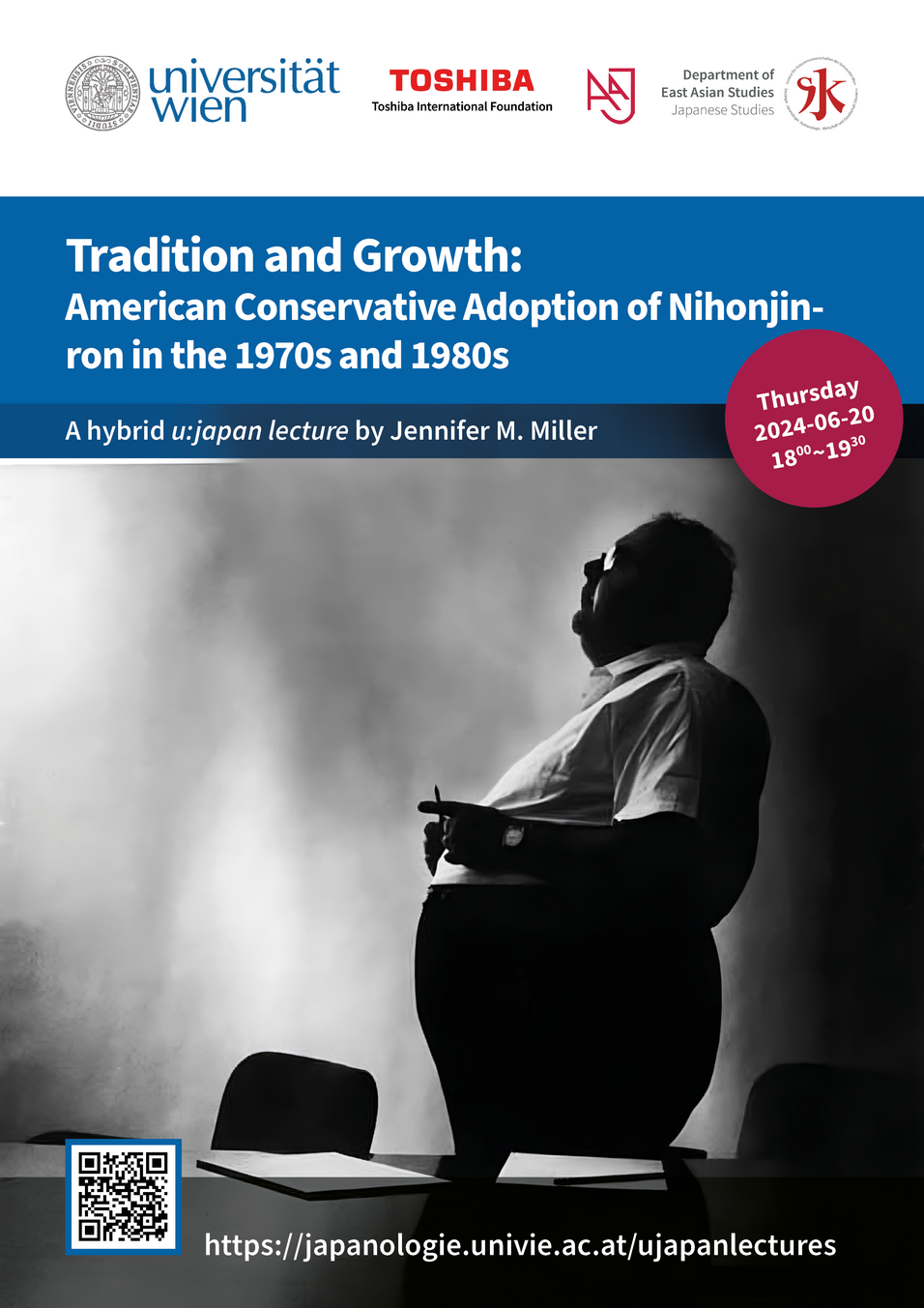| Abstract |
In the mid-1970s, many Americans took a new interest in Japan, sparked by its "miraculous" economic growth. This attention was especially prominent among an influential and prominent group of writers and thinkers known as neoconservatives, who worried that the capitalist stagnation of the 1970s was leading the United States into nihilism and cultural chaos. Writers with little prior Japan expertise, such as sociologist Nathan Glazer and futurist Herman Kahn, took it upon themselves to become "interpreters" of Japan, explaining to Americans why Japan had accomplished such economic success. They claimed that Japanese growth was due to Japanese culture, arguing that Japan demonstrated a successful marriage between tradition and modernity. Yet where did they get these ideas? Glazer, Kahn and others were heavily dependent on Japanese thinking. Among other source, they drew on nihonjinron, a literature that sought to explain the "essence" of Japanese-ness and often heralded Japan's allegedly unique social, cultural, and racial homogeneity as the source of Japan's success. Charting how Americans utilized the translations of nihonjinron writers Nakane Chie and Doi Takeo, this talk will trace how Japanese thinking about its own success shaped American understandings of economic growth, capitalist possibility, and globalization at the dawn of the 1980s. In particular, it will examine how these Americans used nihonjinron to build a broader argument about the importance of "culture" and a return to "tradition" as the solution to the United States' economic ills. By tracing this process of intellectual transmission, this talk will show Japan's role in undergirding broader conservative visions of economic growth, which emphasized on cultural values and traditions and sought to legitimize both domestic and global inequality.
| Bio |
Jennifer M. Miller is an associate professor of history at Dartmouth College. Her first book, Cold War Democracy: The United States and Japan (Harvard University Press, 2019), examined the convergence and clash of American and Japanese understandings of democracy between 1945 and 1963. She is currently working on a book that explores the lessons that Americans drew from Japanese economic growth from the 1970s to the 1990s and traces ways in which these lessons shaped capitalism and neoliberalism in United States. Her research has also been published in the Modern Intellectual History, Diplomatic History, Journal of American-East Asian Relations, and Journal of Contemporary History.
| Date & Time |
u:japan lecture | s08e12
Thursday 2024-06-20, 18:00~19:30
| Place & Preparations |
| Plattform & Link |
https://univienna.zoom.us/j/65773623843?pwd=UGbUwfkkr6fwLJuITSPlKLpw3NHVTa.1
Meeting ID: 657 7362 3843 | Passcode: 916246
| Further Questions? |
Please contact ujapanlectures.ostasien@univie.ac.at or visit https://japanologie.univie.ac.at/ujapanlectures/s08/#e12.


